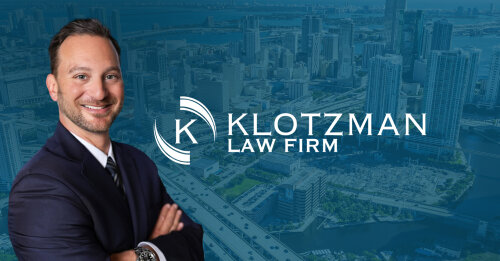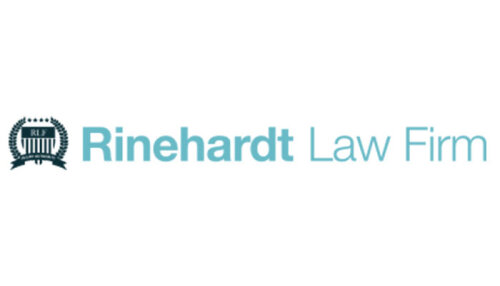Best Insurance Defense Lawyers in New York
Share your needs with us, get contacted by law firms.
Free. Takes 2 min.
Or refine your search by selecting a city:
List of the best lawyers in New York, United States
About Insurance Defense Law in New York, United States
Insurance defense law in New York involves representing insurance carriers and their insureds in civil litigation and claims. These cases often arise when an individual or entity is sued for alleged damages or liability covered under an insurance policy, such as automobile accidents, property damage, medical malpractice, or professional liability. Insurance defense attorneys work to protect the interests of insurers by investigating claims, defending lawsuits, negotiating settlements, interpreting policy language, and ensuring claims are handled within the bounds of New York law.
Why You May Need a Lawyer
Legal assistance in insurance defense is often necessary in situations where:
- A person or business has been sued and has coverage under an insurance policy that provides defense and indemnification.
- An insurance carrier is questioning its duty to defend or indemnify an insured under the terms of a policy.
- Claims involve potential fraud, exaggerated losses, or conflicting accounts of an incident.
- Negotiation or litigation is required to resolve disputes involving coverage limits, exclusions, or policy interpretation.
- Multiple parties are involved with complex liability or damages issues.
- There is a risk of substantial financial exposure or punitive damages.
- A prompt and thorough investigation of the facts is required to protect legal rights.
- Claims must be resolved in line with regulatory requirements and industry standards.
Local Laws Overview
New York has a distinct set of statutes, regulations, and court rules governing insurance and liability claims. Some key aspects relevant to insurance defense include:
- No Fault Law: In auto accident cases, New York is a "no fault" state, meaning that for most accidents, each driver's own insurance pays up to $50,000 for damages, regardless of fault, unless injuries are "serious" as defined by law.
- Comparative Negligence: New York uses pure comparative negligence, so a plaintiff can recover damages even if they are partially at fault, but the award will be reduced by their percentage of fault.
- Statute of Limitations: Personal injury claims must generally be filed within three years from the date of the incident, but time limits can vary by case type.
- Duty to Defend and Indemnify: New York law outlines when insurers must defend and compensate their policyholders under the terms of an insurance contract.
- Bad Faith Standards: Insurers are expected to act in good faith; breaches can result in additional liability.
- Discovery and Pretrial Procedures: Local civil procedural rules affect how claims are investigated and litigated, including mandatory disclosures and timelines specific to New York courts.
Frequently Asked Questions
What is insurance defense?
Insurance defense is the legal practice of defending insurance companies and their policyholders against lawsuits or claims seeking damages that may be covered under an insurance policy.
Who hires insurance defense attorneys?
Insurance companies typically hire these attorneys to represent them and their insured clients when a claim is made or a lawsuit is filed against the insured party.
What types of cases do insurance defense lawyers handle?
Common cases include auto accidents, property damage, general liability claims, professional malpractice, construction defects, workers compensation, and more.
Do I get to choose my insurance defense lawyer?
Often, the insurance carrier has a "panel" of approved defense law firms and will assign counsel. However, some policyholders may have input or the ability to select counsel depending on their policy.
Does an insurance company have to defend me in every lawsuit?
Not always. The duty to defend depends on the terms of your policy and whether the claim against you is potentially covered. If there is a potential for coverage, insurers often must provide a defense.
What happens if the damages claimed exceed my policy limits?
If a judgment exceeds your policy limits, you may be personally responsible for the excess amount. Prompt communication with your insurer and your assigned attorney is crucial in such situations.
Can my insurance company deny my insurance defense?
Insurers can deny coverage for claims that do not fall within the terms of your policy or are subject to exclusions. However, disputes over denial are subject to New York law and could be challenged in court.
What is a "reservation of rights" letter?
A reservation of rights letter is a notice from your insurance company stating they will defend you in a lawsuit, but they reserve the right to deny coverage later if the claim is determined not to fall under your policy.
What should I do if I receive legal papers in a lawsuit?
Immediately notify your insurance company and provide all documentation. Delays can jeopardize your coverage and defense rights.
How can I check if my insurance company is acting in bad faith?
If you suspect your insurer is not acting in your best interest, is denying valid claims, delaying action, or not keeping you informed, consult an experienced insurance defense attorney or file a complaint with the New York State Department of Financial Services.
Additional Resources
Finding support and accurate information is important for anyone involved in an insurance defense matter. Some helpful resources include:
- New York State Department of Financial Services - Oversees insurance regulation and consumer complaints.
- New York State Unified Court System - Provides information on court rules and civil procedures.
- New York State Bar Association - Directory of attorneys and legal resources.
- American Bar Association Section of Litigation - Insurance law resources and guides.
- Insurance Information Institute - General background on insurance industry best practices and legal topics.
Next Steps
If you are seeking legal guidance relating to insurance defense in New York:
- Gather all relevant documents, including your insurance policy, correspondence from your insurance company, and any legal papers you have received.
- Notify your insurance company promptly of any claims or lawsuits, as timeliness is critical.
- Consult with an attorney who specializes in insurance defense law in New York. The attorney can help you understand your rights, evaluate your specific case, and protect your interests.
- If you do not have a preferred attorney, ask your insurance company if they can recommend legal counsel, or use local bar association resources to research qualified lawyers.
- Stay informed throughout the process and maintain open communication with both your insurer and your legal counsel.
Navigating insurance defense issues can be complex, but with the right legal support, you can ensure your interests are adequately protected in accordance with New York law.
Lawzana helps you find the best lawyers and law firms in New York through a curated and pre-screened list of qualified legal professionals. Our platform offers rankings and detailed profiles of attorneys and law firms, allowing you to compare based on practice areas, including Insurance Defense, experience, and client feedback.
Each profile includes a description of the firm's areas of practice, client reviews, team members and partners, year of establishment, spoken languages, office locations, contact information, social media presence, and any published articles or resources. Most firms on our platform speak English and are experienced in both local and international legal matters.
Get a quote from top-rated law firms in New York, United States — quickly, securely, and without unnecessary hassle.
Disclaimer:
The information provided on this page is for general informational purposes only and does not constitute legal advice. While we strive to ensure the accuracy and relevance of the content, legal information may change over time, and interpretations of the law can vary. You should always consult with a qualified legal professional for advice specific to your situation.
We disclaim all liability for actions taken or not taken based on the content of this page. If you believe any information is incorrect or outdated, please contact us, and we will review and update it where appropriate.
Browse insurance defense law firms by city in New York
Refine your search by selecting a city.
















